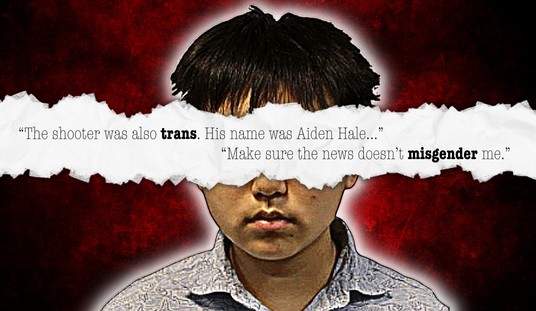No one had to sign a statement of faith before tossing British tea into Boston Harbor in 1773. No one has to sign a statement of faith before joining a Tea Party demonstration in 2010. And therein lies a lesson for politically involved Christians.
As Christians, we want to defend our religious liberty. Parents should be able to homeschool their children or send them to Christian schools. Christian professors and social workers, when asked what animates them, should be able to talk about Christ. Adoption agencies based on biblical understandings should be able to place children with father-mother rather than same-sex couples.

But we should also, as citizens, be involved with issues such as healthcare. Nothing in the Bible explicitly says we can't have government-controlled healthcare. Nothing in the Bible says we can't have monarchy, for that matter. So we get into trouble when we band together as Christians and speak dogmatically on issues that aren't clearly connected to our faith. On extra-biblical policy matters we should speak as citizens and join with other citizens in seeking a redress of grievances.
We can gain wisdom here by studying Paul's first letter to the Corinthians. Look at the phrases he uses: "Now as a concession, not a command, I say this... I say (I, not the Lord). . . . I have no command from the Lord, but I give my judgment . . . in my judgment." If Paul, an apostle who wrote under God's inspiration, is this cautious, how much more careful should the rest of us be?
The same goes in the classroom and the public square. Long-time readers of WORLD are familiar with the whitewater rapids metaphor we use in approaching news coverage. Class 1 and Class 2 rapids are easy to navigate, so Class 1 issues are those on which the Bible explicitly takes a position (for example, murder and adultery are wrong). Class 2 issues involve an implicit biblical position (for example, parents should give their children a Bible-based education).
Recommended
About such issues, how to think and what to think are tightly connected. To put it another way, the "how to think" procedure should always be to go first to the Bible. If we read a command from the Lord, that should be sufficient for us: It's not our task to second-guess the Creator of heaven and earth.
But God, for His purposes, has given us in most of the Bible not a detailed instruction manual but a narrative history of particular actions at particular times. The book of Joshua reports wars of extermination: Are we to go and do likewise? The storytelling in Judges 17—after a mother enables her thieving son, he sets up a cult and hires an unethical Levite—is masterful, but the teaching is not as direct as "Thus saith the Lord."
Furthermore, we may not always know how to apply God's clear commands, maybe because of our own sin but also because the rules for living in Israel do not always apply to life within modern American pluralism. After all, those rules didn't always apply even in Babylon 2,600 years ago: God commanded the Israelites in Deuteronomy 18:9-13 not to tolerate enchanters, sorcerers, or wizards, but Daniel had to hang out with them.
The apostle Paul did not follow the example of Gideon, who within Israel destroyed an altar of Baal (Judges 6). Paul did not take a hammer to the numerous altars he saw during his walk through Athens (Acts 17). That did not make him a wimp: He reasoned "in the marketplace every day with those who happened to be there." He debated the city's philosophical elite. He was fully a Christian but also fully a Roman citizen, and never hesitated to demand his rights as a citizen.
Christian writers David Kuo in 2006 and James Davison Hunter earlier this year—see "Silent treatment," WORLD, June 5, 2010—examined evangelical political involvement and then suggested that Christians should "be silent for a season."
If they mean that people should not walk under a church banner at a Tea Party demonstration, OK. But if they mean putting aside our rights as citizens: No. We should join with others in defending religious, political, and economic liberty.

























Join the conversation as a VIP Member